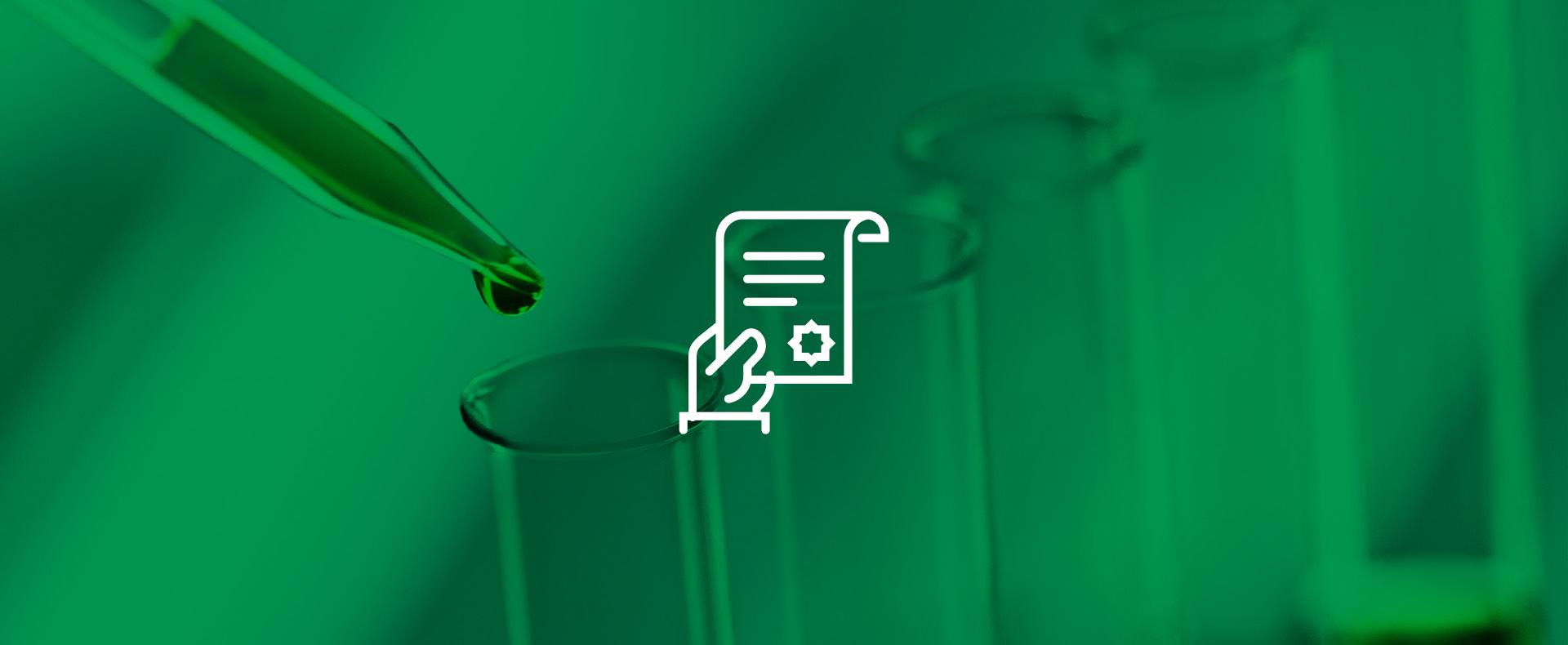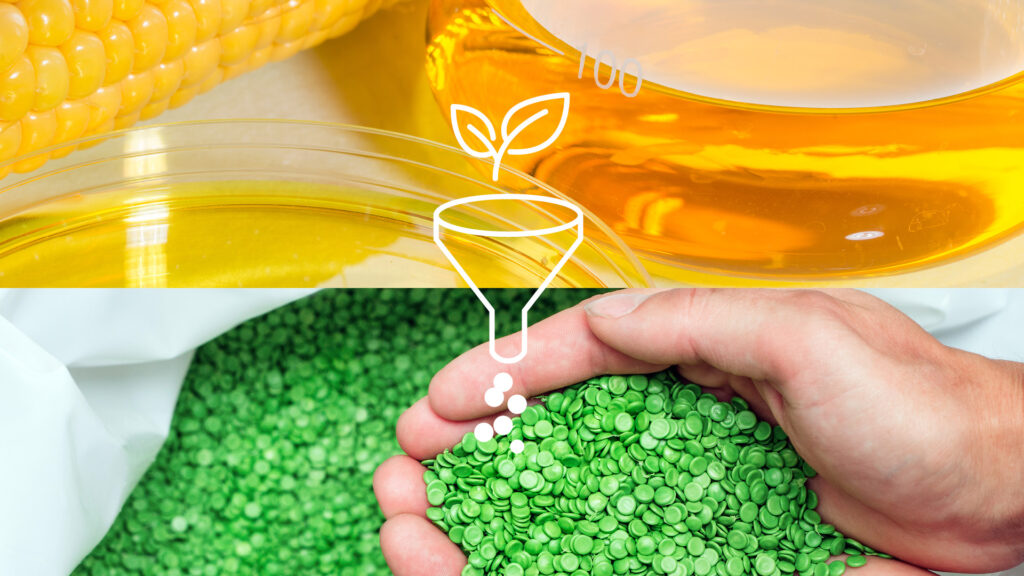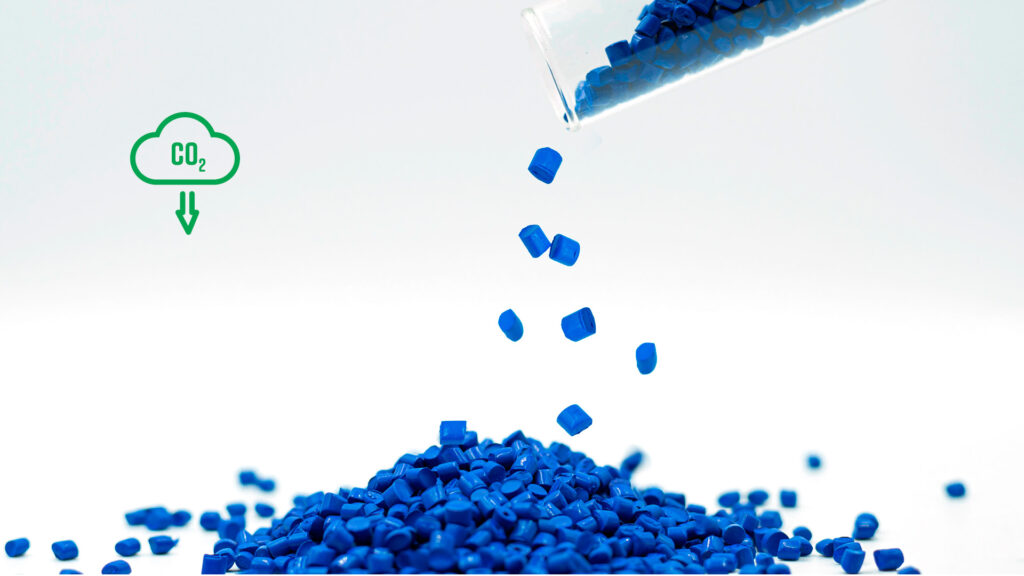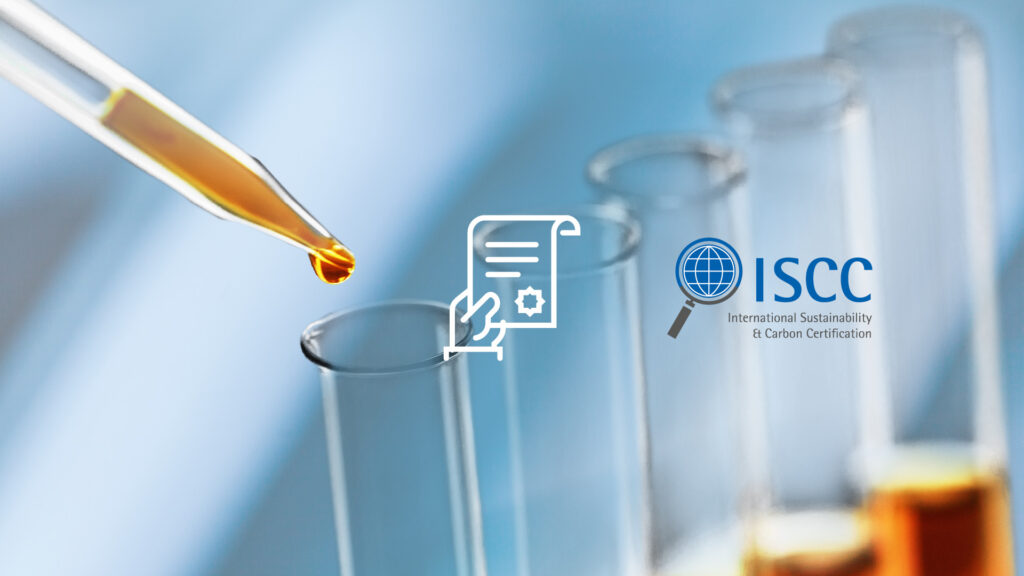
ISCC PLUS – Certified bio-based plastics
An opportunity for a greener choice! Nowadays, many so-called traditional plastics made from crude oil can be made from renewable sources – fossil-free. Get to know about the certificate through the case presentation
An opportunity for a greener choice

Bio-based plastics
Nowadays, many so-called traditional plastics made from crude oil can be made from renewable sources – fossil-free.
With regard to the raw materials needed to make plastic, renewable sources mean taking advantage of the opportunities the plant world offers, instead of using fossil fuels. Carbohydrate-rich plants, especially, such as sugar cane, sugar beet, corn and potatoes have many refining possibilities. Various vegetable fats and oils can also be used as raw material.
“Bio-Based” means lower greenhouse gas emissions

When using bio-based production methods instead of fossil fuels, greenhouse gas emissions decrease significantly. Unlike fossil components, the corresponding components in the plant world sequester carbon dioxide from the atmosphere during growth.
Bio-based plastics are already available in significant quantities, and new products, as well as sustainable sources of biomass, are constantly being developed.
All types of materials
There are many different types of bioplastics and solutions referred to as bioplastics all around the world. However, there is no guarantee that all products claimed to be bio-based are just that. In some cases, the responsibility for the bio-based nature of the product rests entirely with the consumer.
A product’s non-fossil origin can now be proven with the ISCC PLUS certificate. For Okartek’s customers, the certificate functions as a testimony to their environmental responsibility in using bio-based products, and they no longer have to feel guilty about the products they use.
“We are moving towards a low-carbon circular economy.
The transition is going to be immense. With the ISCC PLUS certification, Okartek is a strong, responsible forerunner in this transition to produce non-fossil plastic products. A competent and versatile, responsible Finnish company.”Vesa Kärhä, managing director for the Finnish Plastics Industries Federation
Mass balance to replace fossil raw material
When it comes to talk about bio-based plastics, the expression ”mass balance” has slowly begun to seep into the discussion.
Mass balance is a relatively new way to promote the use of renewable raw materials in the manufacture of traditional
plastics. The certified supply chain and the records required by the certificate ensure that traceability is maintained for both the source and quantity of the renewable raw material. A more familiar product group, green electricity, is produced and traded more or less according to the same principle.
To ensure production is efficient, renewable and fossil material are mixed together. The advantage of this concept is that existing infrastructure can be used for processing. Therefore, the final product is still a plastic material with the same features as a product made from fossil materials, and it can be used in the same contexts, such as in food packaging.
Certificate of responsibility throughout the entire production chain

ISCC PLUS certified material is not merely a guarantee that a certain stage of production or delivery contains bioplastic; rather, the entire production chain is subject to the stipulations in the certificate.
Everyone involved in the production chain must have the certificate. To ensure each link in the chain operates environmentally responsibly, all those in the chain must also keep an accurate record of material flows.
“At its simplest, this means, for example, that we receive a sustainability declaration from the materials supplier which proves that the material complies with the ISCC. We then use the same declaration to show the next party in the production chain that the product has been made in the way required by the ISCC”
Jonni Nieminen, Okartek Oy, Quality Manager
Reports are compiled every three months. The certificate is audited every year, at which time the required reports and accounts must be in up to date.